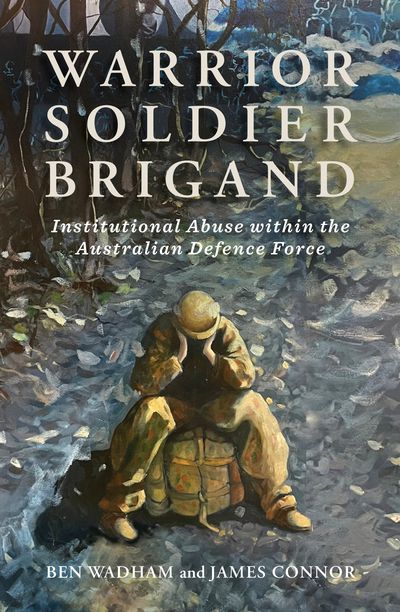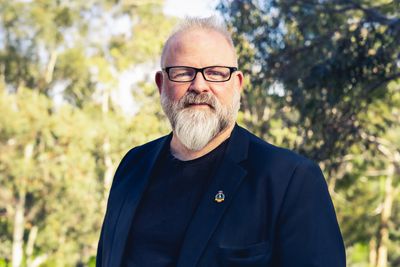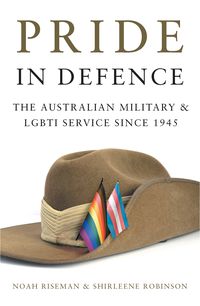Warrior Soldier Brigand
Institutional Abuse within the Australian Defence Force
Ben Wadham, James Connor
Paperback
Out of stock
$36.99
Member discount
As an MUP member you get 40% off the price of this book.
Member discount
As an MUP member you get 40% off the price of this book.
Member discount
As an MUP member you get 100% off the price of this book.
Member discount
As an MUP member you get 25% off the price of this book.
Member discount
As an MUP member you get 25% off the price of this book.
Member discount
As an MUP member you get 25% off the price of this book.
Member discount
As an MUP member you get 40% off the price of this book.
Member discount
As an MUP member you get 10% off the price of this book.
Member discount
As an MUP member you get 35% off the price of this book.
Member discount
As an MUP member you get 40% off the price of this book.
Warrior Soldier Brigand
Institutional Abuse within the Australian Defence Force
Ben Wadham, James Connor
A forensic analysis of how institutionalised abuse in the Australian Defence Force has affected its personnel.
Please be advised that the contents of Warrior, Soldier, Brigand depict first person accounts of institutional abuse that readers may find distressing.
Questions of institutional abuse have been at the centre of numerous royal commissions, inquiries and reviews of the clergy, the police and defence forces over the past decade. This scrutiny has highlighted how those organisations foster forms of violence and violation. One of their principal characteristics is that the culture of abuse and its perpetration is largely the work of men. In Warrior Soldier Brigand, Ben Wadham and James Connor argue that three pillars shape the patterns of abuse in the Australian Defence Force: martial masculinities, military exceptionalism and fraternity. Historically, the military has been an almost exclusively male domain, but since the Vietnam War it has become an all-volunteer force and more culturally diverse, a change that has proven to be profoundly challenging, and one the…
Please be advised that the contents of Warrior, Soldier, Brigand depict first person accounts of institutional abuse that readers may find distressing.
Questions of institutional abuse have been at the centre of numerous royal commissions, inquiries and reviews of the clergy, the police and defence forces over the past decade. This scrutiny has highlighted how those organisations foster forms of violence and violation. One of their principal characteristics is that the culture of abuse and its perpetration is largely the work of men. In Warrior Soldier Brigand, Ben Wadham and James Connor argue that three pillars shape the patterns of abuse in the Australian Defence Force: martial masculinities, military exceptionalism and fraternity. Historically, the military has been an almost exclusively male domain, but since the Vietnam War it has become an all-volunteer force and more culturally diverse, a change that has proven to be profoundly challenging, and one the ADF has not always readily welcomed nor sufficiently addressed. While the ADF may train and accommodate some of the best military personnel in the world, it has not resolved the use of that violent potential against its own.
Exploring the fundamental paradox that underpins abuse in the military - an organisation of and for violence -Wadham and Connor report on the shifting landscape of the ADF since 1969, describing military institutional abuse across the decades and asking the question: to what extent can an authoritarian institution liberalise?
Paperback
Out of stock
$36.99
Member discount
As an MUP member you get 40% off the price of this book.
Member discount
As an MUP member you get 40% off the price of this book.
Member discount
As an MUP member you get 100% off the price of this book.
Member discount
As an MUP member you get 25% off the price of this book.
Member discount
As an MUP member you get 25% off the price of this book.
Member discount
As an MUP member you get 25% off the price of this book.
Member discount
As an MUP member you get 40% off the price of this book.
Member discount
As an MUP member you get 10% off the price of this book.
Member discount
As an MUP member you get 35% off the price of this book.
Member discount
As an MUP member you get 40% off the price of this book.





